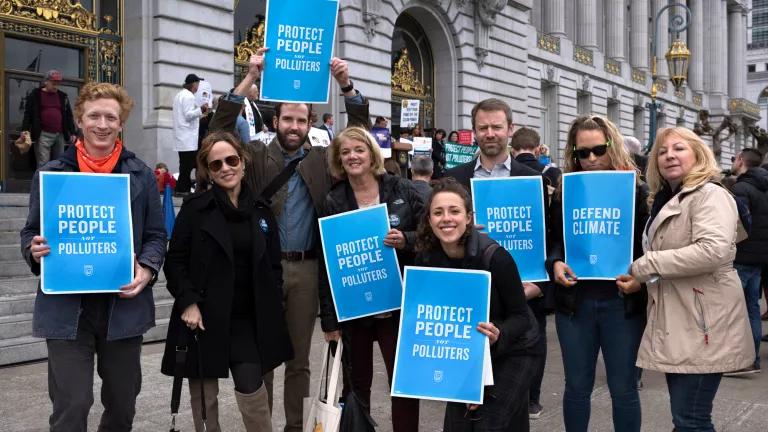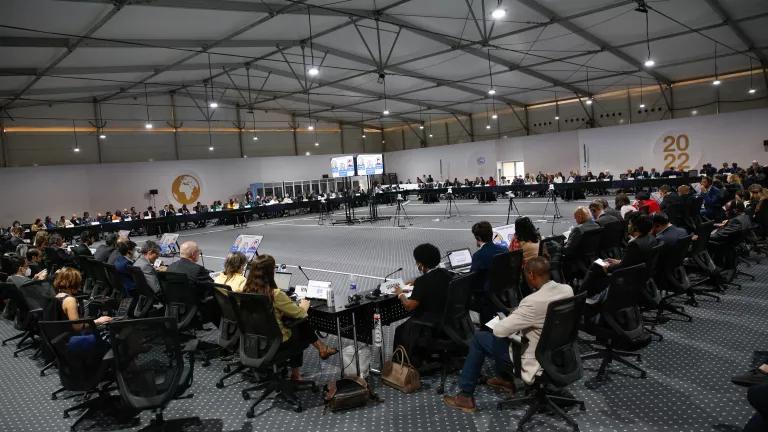"Climate change is a global problem with grave implications: environmental, social, economic, political and for the distribution of goods. It represents one of the principal challenges facing humanity in our day. Its worst impact will probably be felt by developing countries in coming decades."
With these words, Pope Francis - leader of 1.2 billion Catholics around the globe - clearly and publically stated the position of the church about climate change, environmental pollution, humanity and the future of the planet in the encyclical issued on June 18. After summarizing data and information from a range of scientists and experts, as well as the historical relationship between the church's doctrine and the environment, the Pope came to powerful conclusions: that human activities are dramatically affecting the climate and natural resources of "our common home" to the detriment of the world's poorest people, and that we all have the moral responsibility to look for and create solutions. For many people, these conclusions are not new, and are, in fact, quite obvious - for example among communities that are already familiar with record droughts and the lack of drinking water, with ferocious storms and extraordinary floods, with the lack of food or the abundance of air pollution.
For leaders in Latin America - where many of the worst effects of climate change are already felt every day - this message struck a chord, and their responses to the encyclical demonstrate strong support for Pope Francis's ideas, underlining the urgency of the situation. Below, I will describe some of the most noteworthy reactions from the region, though this list is far from complete:
The President of Ecuador, Rafael Correa, and his government showed their support for the "green" encyclical due to its emphasis on worldwide inequality and its connection between the environment and poverty. The president called the document "impressive" and was enthusiastic for the pope's upcoming visit to Ecuador in July.
In Colombia, President Juan Manuel Santos said that the encyclical's message fits with the government's efforts to arrive at a peace agreement with the Revolutionary Armed Forces of Colombia (FARC, per its name in Spanish). According to Santos, the ongoing guerrilla war aggravates the country's vulnerability to global warming. At the same time, the Minister of Environment and Sustainable Development, Gabriel Vallejo, expressed his happiness at seeing the pope's acknowledgement of the critical role the Amazon rainforest plays as the "world's lungs."
The Bolivian government, via Alfredo Rada, the vice-Minister of Coordination of Social Movements, confirmed that the words of Pope Francis were in line with the focus of President Morales, who has expressed his opinion in various international forums that developed countries should pay their "climate debt" to developing countries. The pope will also visit Bolivia in July.
The Brazilian Senator, Jorge Viana, spoke of his agreement with the key messages of the encyclical and expressed his hope that the document could inspire a global climate accord during the international climate conference (or COP) in Paris at the end of this year. Specifically, the senator said that developed countries should contribute more to finding climate solutions than those countries that are still developing.
In addition to politics, leaders of the Catholic Church in the region backed the pope. In Mexico, a group of Mexican and U.S. bishops demonstrated their support for his encyclical, focusing in particular on the need to address the climate situation on both sides of the border, since climate impacts do not follow political boundaries. In Honduras, Cardinal Óscar Andrés Rodríguez Maradiaga admired Pope Francis's call for "another lifestyle" in which people limit "as much as possible the use of non-renewable resources, moderating their consumption, maximizing their efficient use, reusing and recycling them." Cardinal Leopoldo Brenes of Nicaragua committed to distributing the document "at the national level."
It is clear that Pope Francis's green encyclical has arrived at an opportune moment, when various leaders from different countries in Latin America--all of which are vulnerable to the impacts of climate change, albeit perhaps in distinct ways--can, for their own reasons, all agree with the fundamental messages. The pope sees climate change as the common challenge for all of humanity--"urgent and pressing"--and, therefore, the obligation to overcome it is also shared. It is necessary, then, that the leaders of countries in Latin America and the rest of the world commit to ambitious targets, policies and climate agreements in the coming months and during the COP in Paris.




